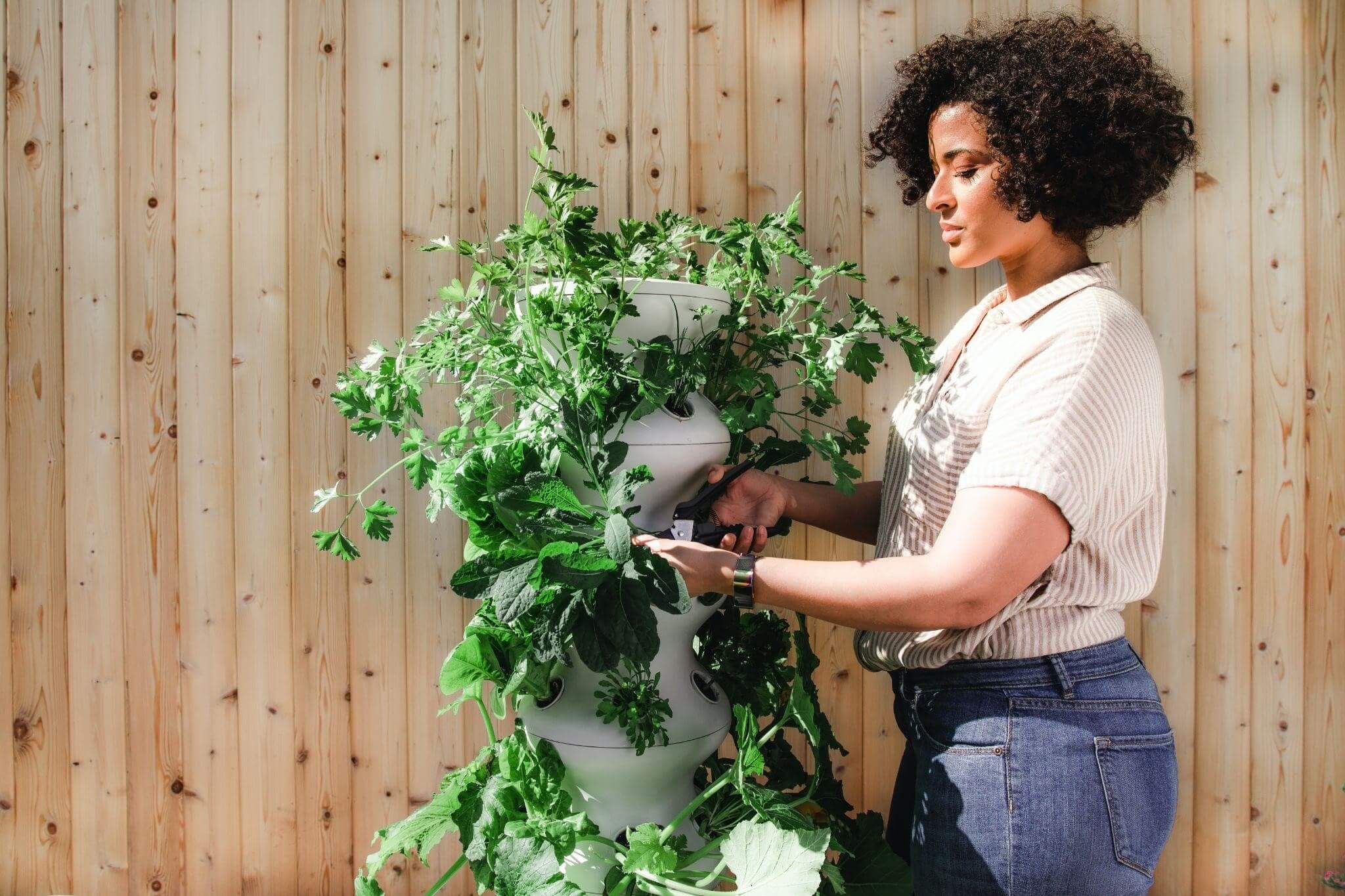
By Corey Doane
Spring has officially sprung and what better way to spend a sunny spring day than in the garden? While we all know that gardening and being outdoors can do wonders for our mental health, did you know it can also help break a hefty sweat? If your yard work is piling up, forget the gym—gardening can be just as effective as lifting weights or taking your favorite aerobic class.
Below we talk about gardening as exercise and how gardening benefits your physical and mental health.
Is Gardening Considered Exercise?
The answer is yes! Gardening is considered a moderate form of physical activity according to the American Heart Association. In fact, research has found that gardening can burn the same number of calories as you would in the gym. According to the CDC, gardening burns more calories than many other common moderate physical activities—like biking, walking and stretching. Thirty minutes of light gardening and yard work can burn around 165 calories, while one hour in the garden can burn over 330 calories.
Because gardening combines physical activity with exposure to nature and natural sunlight, it’s great for our physical and mental health.
5 Health Benefits of Gardening
From a stronger immune system to improved mental health, here are just a few of the many benefits gardening can sprout.
1. It promotes better brain health.
Our brain health is one of the most critical parts of our overall health as it affects our ability to communicate, make decisions and function in our everyday lives. Studies have shown that gardening helps stimulate the brain and may be associated with lower chances of dementia. One study, in particular, revealed that daily gardening reduced the risk of dementia by 36 percent.
Outdoor workouts like gardening expose us to higher levels of Vitamin D which helps produce and increase levels of serotonin in our brains. Serotonin is also known as the brain’s happy hormone. Aside from improving our mood, serotonin in the brain also helps with memory.
2. It can help improve your diet.
Because you’re able to grow your own produce, gardening can greatly impact the type of food you put into your body. People who grow fruits and vegetables naturally eat more fruits and veggies because they’re easily accessible—and they taste better too! If you’re curious about harvesting produce, start with fruits and vegetables that are fairly easy to grow as a beginner. Carrots, strawberries, lettuce, bell peppers and tomatoes are just some of the easiest produce to grow.
You don’t have to grow your own produce to encourage healthier eating, though. Joining a community garden can help you engage with other gardeners and try out different kinds of produce. Or, head to your local farmers market for local and organic produce that supports your body and your community farmers.
3. It can improve your mental health.
As mentioned, outdoor gardening is a great way to get some much-needed Vitamin D, which is essential for improving our mood. Gardening can and has been used as a form of therapy and has been shown to decrease feelings of depression, stress and anxiety. Simply observing nature and being outdoors greatly benefits our mental health, but when you’re working on a gardening task, it can help alleviate and subside negative thoughts while improving your ability to concentrate.
One study found that 30 minutes of gardening decreased more stress than 30 minutes of reading a book indoors.
4. It can help maintain a healthy weight.
Gardening contributes to maintaining a healthy weight because it encourages healthy eating and helps you break a sweat—a win-win. If you’re looking for ways to make your gardening routine more vigorous, here are a few tips:
- Engage your large muscles like your legs as much as possible so you can burn as many calories as possible.
- Increase your range of motion so you’re able to build your strength and power.
- Complete gardening tasks in reps or sets as you would in the gym.
- Incorporate bodyweight exercises into your gardening routine, like lunging while weeding or doing squats while carrying a bag of soil.
If you know you’ve got a long day of yard work ahead, always make sure to stretch before to avoid any physical injuries.
5. It supports a healthy immune system.
Because our Vitamin D intake is increased during outdoor gardening, it helps support a healthy immune system. In fact, research has found that beneficial bacteria that are present in soil may help strengthen your immune system and reduce inflammation.
If you’re prone to seasonal allergies, make sure to take precautions while gardening by wearing protective workout clothes and gloves, not touching your eyes or face and showering right after you’re finished. This can help reduce allergy symptoms if you’re prone to allergies from pollen or other highly-allergenic plants.
6 Gardening Activities to Keep You Physically Fit
Ready to get your sweat on in the garden but not quite sure where to start? Here are just some of the many gardening activities you can engage in and what muscles they can target:
- Weeding: strengthens your legs, arms and back.
- Digging: strengthens your back, arms, shoulders and core.
- Harvesting: strengthens your quads, hamstrings, glutes, calves and biceps.
- Mowing: strengthens your back, hips, core and shoulders.
- Raking: strengthens your biceps, shoulders and forearms.
- Sweeping: strengthens your arms, hips and legs.
If you’re looking for a way to relax your mind while working up a good sweat, give gardening a try! You don’t have to be a gardening expert to work out your mind and body. For more info on gardening as exercise as well as tips for digging your way to a healthier life, check out the infographic below.
What are your thoughts on Gardening benefits?
Do share your views with us in the comments below.

Corey Doane
Corey Doane is a digital content creator who helps Adidas create helpful and compelling stories worth sharing. Her background in digital marketing and creative writing has led her to cover unique topics ranging from business to eco to lifestyle.















Leave a Reply